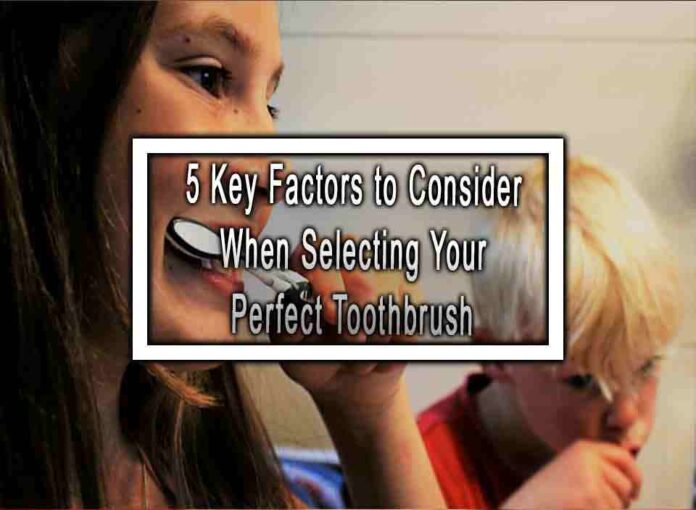Selecting the right toothbrush is crucial for maintaining good oral hygiene. Here are five key factors to consider when choosing your perfect toothbrush:
1. Bristle Softness
The softness of the bristles is important to protect your teeth and gums from damage according to this female dentist in Melbourne FL. Soft or extra-soft bristles are recommended by most dental professionals as they effectively clean the teeth without causing irritation or abrasion to the gums. Avoid using toothbrushes with hard or stiff bristles, as they can potentially harm your gums and tooth enamel.
2. Size and Shape of the Head
The size and shape of the toothbrush head should allow easy access to all areas of your mouth, including the back molars. Ideally, the head should be small enough to reach the difficult-to-reach areas, such as the back of your mouth, and maneuver comfortably around your teeth.
3. Handle Grip and Comfort
The handle of the toothbrush should provide a comfortable grip to ensure proper control and maneuverability during brushing. Look for a toothbrush with a handle that fits well in your hand and has a nonslip surface. A comfortable grip will make it easier to brush effectively and for the recommended two minutes.
4. Manual or Electric
Decide whether you prefer a manual toothbrush or an electric one. Both options can effectively clean your teeth if used properly. Electric toothbrushes, particularly those with rotating or oscillating heads, can be beneficial for individuals with limited dexterity or those who find it challenging to maintain proper brushing techniques. They can also offer additional features such as timers and pressure sensors.
5. ADA Seal of Approval
Look for the American Dental Association (ADA) seal of approval on the toothbrush packaging. The ADA seal indicates that the toothbrush has met certain safety and efficacy standards. Toothbrushes with the ADA seal are typically reliable and suitable for maintaining good oral health.
Remember to replace your toothbrush every three to four months or sooner if the bristles become frayed or worn. Using an old or worn-out toothbrush can be less effective in cleaning your teeth properly. Also, if you’ve been sick or have had an oral infection, it’s advisable to replace your toothbrush to prevent reinfection.
Ultimately, the best toothbrush for you is one that you feel comfortable using and that allows you to clean your teeth effectively. If you have specific concerns or questions about selecting a toothbrush, consult your dentist for personalized recommendations.












